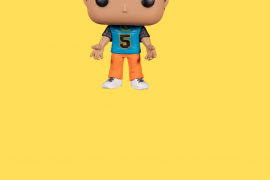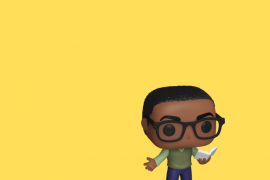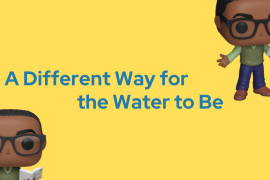THE GOOD PLACE IS OFTEN REFERRED TO AS “AN UNUSUAL HALF-HOUR OF NETWORK TELEVISION” by one of its featured actors, Marc Evan Jackson. This is a slight understatement.
The Good Place is one of the most spoilable shows in recent TV canon, the bombshells dropped each season finale are equivalent to an entire season of dramas like Game of Thrones. The conceit of the show is that all of the characters are dead, in the afterlife, which you would think would remove all stakes. The human story ends with death, it doesn’t begin there. Every other sit-com on TV has characters who meet, grow, fall in love, and live their lives. The Good Place has all of that, except the last bit. When we meet our main cast, they have already died. There are no stakes- except that there are.
The Good Place is also a study in contradictions- it’s a show that is about moral philosophy, without moralizing to its audience. It’s a serious comedy about not just goodness, but about what it means to be good to others and yourself. The main characters are all incredibly different people who have all failed to be “good enough” for the real Good Place, and have thus been condemned to eternal torture. Fire up the penis flattener!
But for Eleanor, Chidi, Jason and Tahani, it’s a psychological torture that meets them in the afterlife. They are each other’s hell, the actions of each creating a cycle of eternal torture for the others. However, through friendship and finding commonalities, they are able to improve themselves. And with the constraints and stresses of the human world removed, they make progress.
The show goes to great effort to humanize the characters, showing us their development from childhood. Eleanor lacks a moral backbone because she was essentially parentless, scraping by like a little tiny drifter before emancipating herself. Chidi has paralyzing anxiety, making it impossible for him to make even the smallest, most inconsequential decision. Jason was pretty much raised as a wild animal, although he had parental love, he had little else, and so became a petty criminal. Tahani was raised with every material advantage, but by cold, unfeeling parents who pitted her against her sister at every juncture and made her feel that she would never be good enough, resulting in her elitism and compulsion to outdo everyone at everything.
The show portrays the truth that we cannot help but be shaped by our environments. The characters on The Good Place are just as human as anyone else, and imperfect. Their imperfections are derived both from their humanity, and from their inability to escape the world they were raised in. When the characters return to earth in the third season, each tries to make changes, to be better, after their near-death experiences. Jason goes legit with his dance crew, Tahani renounces material possessions, Chidi commits to choices, and Eleanor joins an environmental cause. But each inevitably backslides, when faced with the harsh realities of the world. Jason’s dance crew loses, Tahani falls victim to her own vanity, Eleanor is tempted back to her old easy life, and Chidi reverts to his indecisiveness when his advice hurts someone else. By being together again, the gang improves, but real-world obstacles have to still be dealt with. The need for money makes Eleanor nearly quit the experiment, and then when she faces being split up from her friends, she essentially throws an adult temper-tantrum and alienates everyone.
While each character experiences revelation after their near-deaths, it’s not enough, because life is hard. Perhaps, given a full lifetime, with needs met and free time, everyone could attain enlightenment, and become “good enough” for the Good Place, whatever that is. But that simply isn’t the reality, because even a person with the best intentions can make mistakes, or bad choices, or both. Life has stresses, surprises, tragedies. People experience disenfranchisement, poverty, loss, disability, illness, discrimination, abuse, and the results thereof. Victims of abuse sometimes become abusers, the cycle of poverty keeps the poor impoverished, and in the human experience loss is an inescapable fact of life. The Good Place doesn’t say that its characters aren’t good enough, though. Michael talks about how his friends have grown, saying that they are all trying to be better than they have been. “What matters isn’t if people are good or bad. What matters is, if they’re trying to be better today than they were yesterday.” This has stuck with a lot of fans, because it rings true. It is difficult to look at oneself and say “I am a good person.” It is more attainable to say, “I am doing my best to be better every day.”
There is a part of one of Lemony Snicket’s A Series of Unfortunate Events books, the eighth one, The Grim Grotto, when one of the characters says that the world is not divided into noble people and wicked ones, that people are chef’s salads, with good and noble parts mixed in. Essentially, that no one is one thing, and everyone contains multitudes, to borrow from Walt Whitman. The Good Place also pays homage to John Donne, in its acknowledgement of what we are to each other, not just what we owe. “No man is an island,” rather, we are all a part of this insane experiment called humanity, each an oddly-shaped puzzle piece forming a larger image. The actions of each of us propel the rest, and we must all put our best foot forward, in order to best serve each other, and ourselves.
The Good Place tells us what we know, that everyone is capable of good, but that good is not all encompassing, nor is all good the same. Eleanor, Michael, Janet, Tahani, Jason and Chidi are all good, for ending human torture and suffering in the Bad Place. But Judge Gen is also good, even though occasionally her will finds her in opposition to our heroes. In some ways, Shawn is even good- all he wants to do is his job, filling nostrils with wasps from Jeremy to Bearimy. Shawn even has the ability to improve and change, showing that even the most determined demon can be better, by eventually working with the humans and Michael.
There is another fan-favorite moment in the show, when Chidi writes himself a note. It says, “There is no answer, but Eleanor is the answer.” It’s true- love is the answer, friendship is the answer. Even a demon finds redemption in the fellowship of a group of like-minded but reluctant scholars of ethics. A repository of all human knowledge can attain sentience and fall in love. The main thesis of the show isn’t complicated, despite all of the philosophy books: love is the answer. Empathy is the answer. To quote Michael again, “the reason is friends.”
NEW book release
I’ll Tell You a Love Story by Couri Johnson. Order the book of which Tim Jeffries said, “Surprising in their originality, filled with broken wisdom, and with a refreshing use of language and imagery, these are stories to savour and mull over one at a time but which add up to a satisfying whole.”
GET THE BOOKLike what you’re reading?
Get new stories or poetry sent to your inbox. Drop your email below to start >>>
OR grab a print issue
Stories, poems and essays in a beautifully designed magazine you can hold in your hands.
GO TO ISSUES



